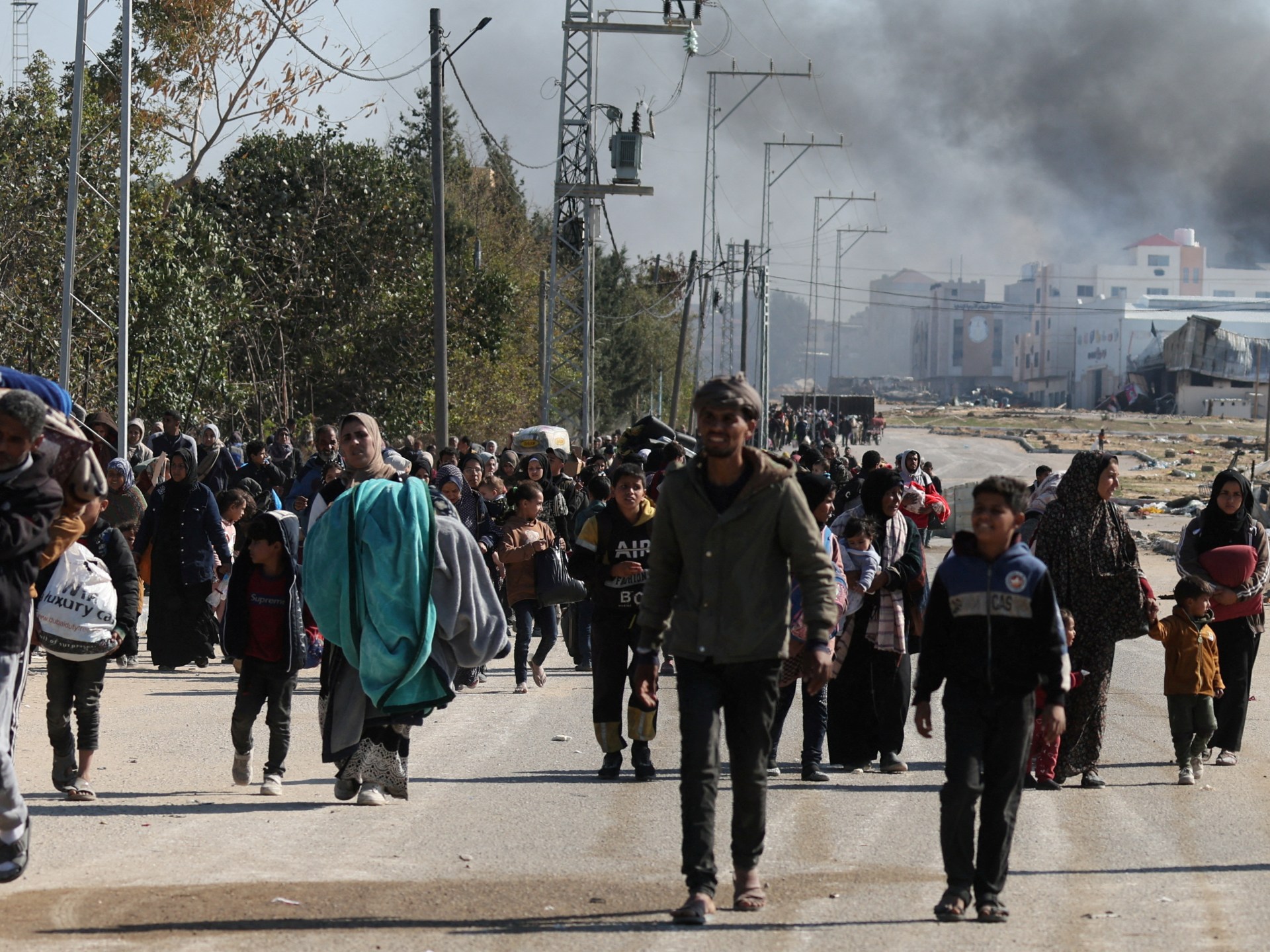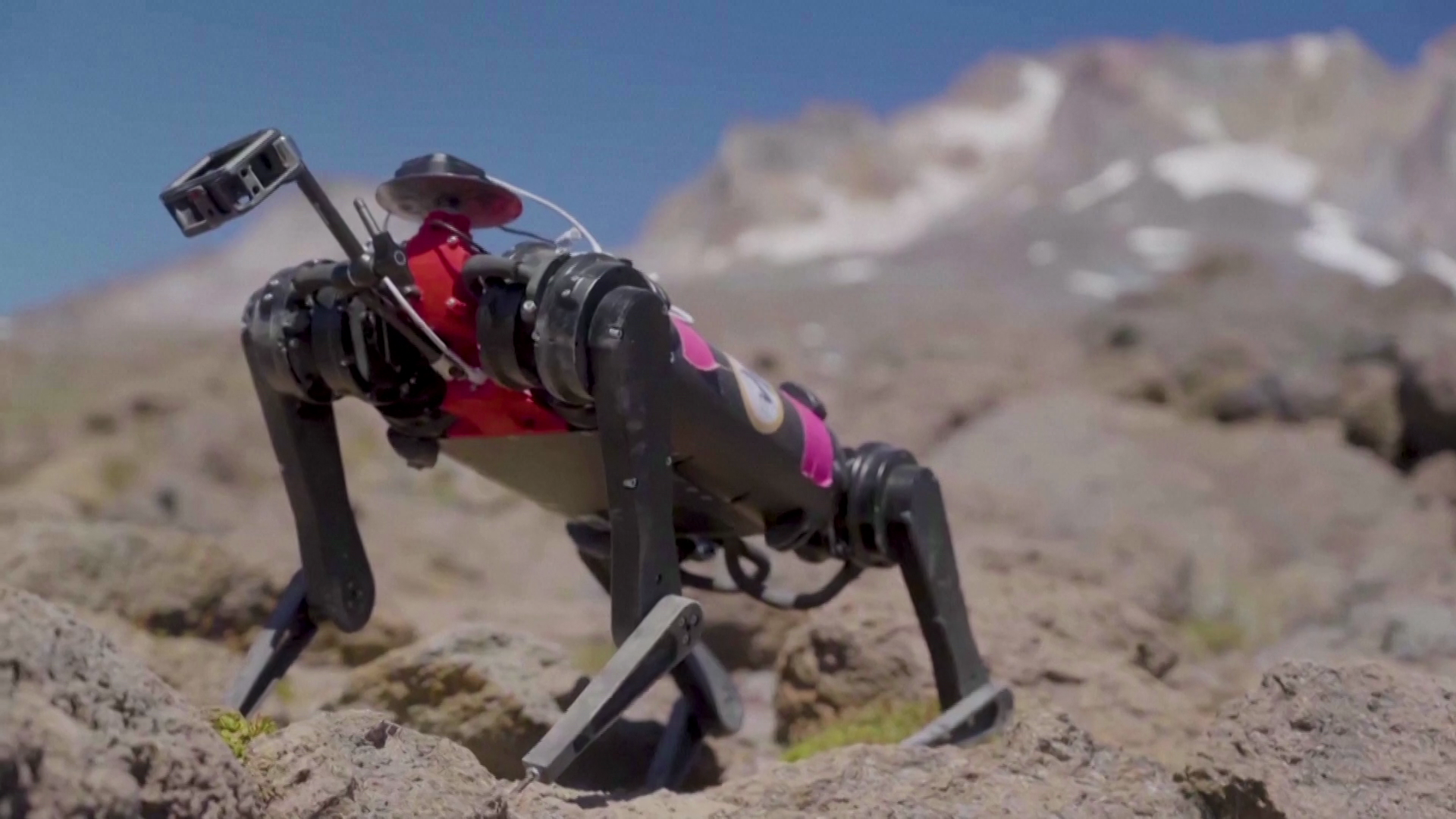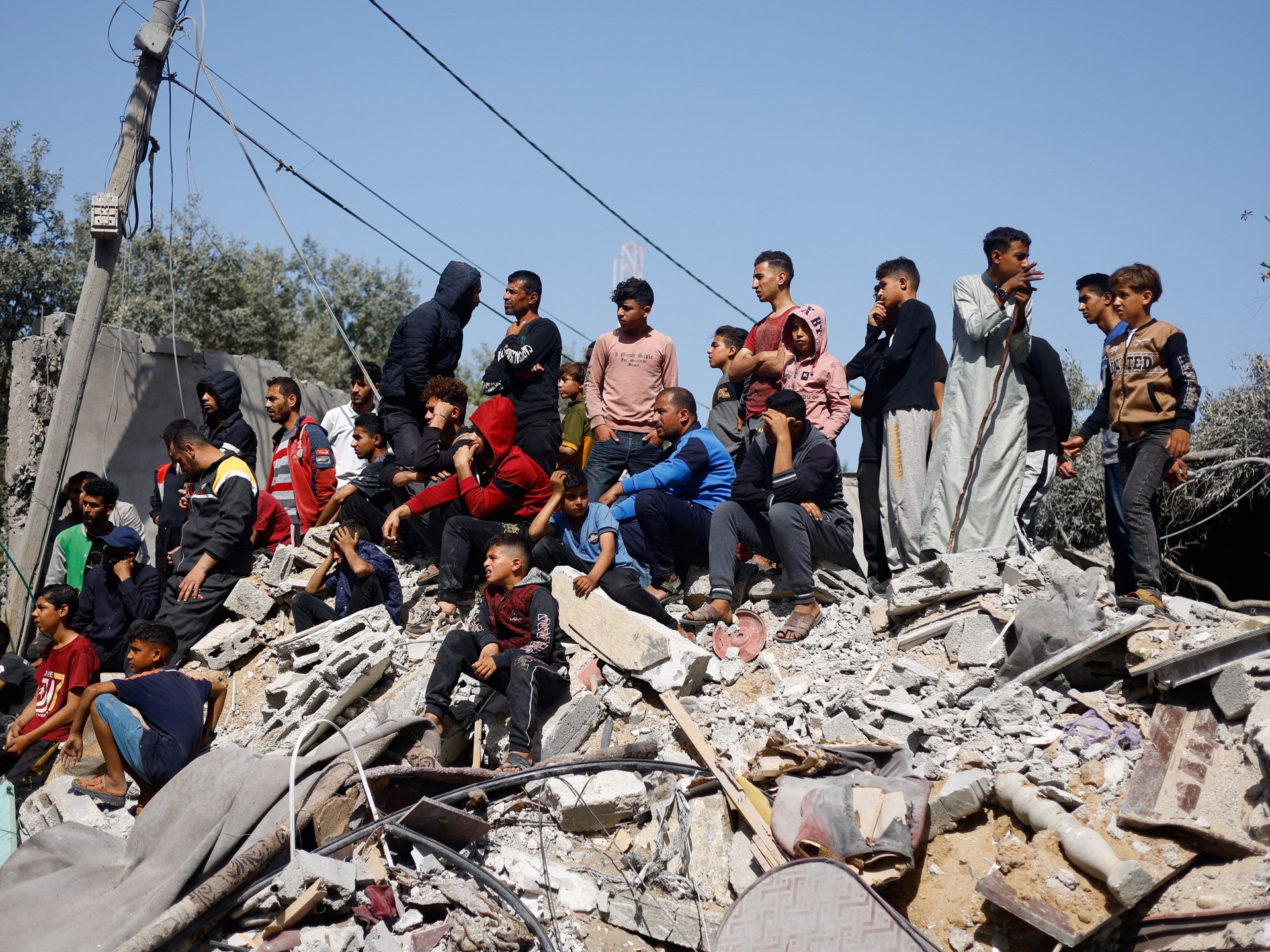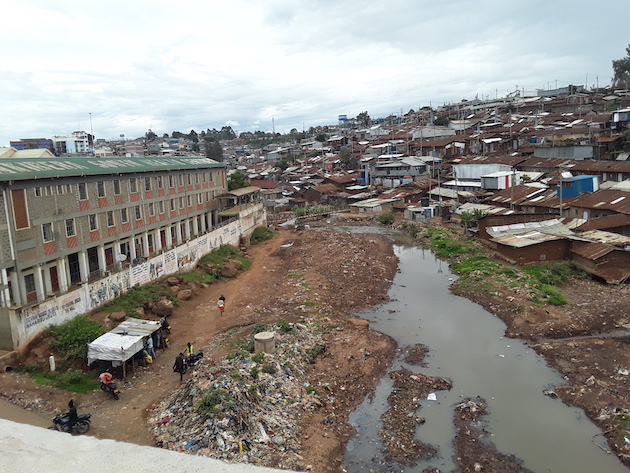‘A dream’: How the Americas’ first free town took its independence back | Arts and Culture News
San Basilio de Palenque, Colombia – Overlooking the usually sleepy, languid town of San Basilio de Palenque is a statue of Benkos Bioho, runaway slave, town founder, and symbol of the town’s heritage and unique nature.
“Africa is everything to me, it’s everything to us Palenqueros,” says Nuno Bembele, education adviser of the San Basilio de Palenque community council, who is sitting in the shade of the town square, wearing a bright green polo shirt emblazoned with the image of Bioho.
Nestled away in Colombia’s rumbling, green hills, the town is hot and lush, and quiet murmurs of pedestrian activity pepper the humble town square.
It’s a quiet Saturday afternoon and the town is still following a brief downpour. People amble around the two parallel streets that frame the square – the only two paved streets in town – seemingly looking for something to do. Most others pass the time simply sitting on their stoops, or clustered around a large speaker blaring traditional vallenato and sipping on cold beers or sharing lukewarm rum to whittle away the hours.
A smattering of elderly men sit around a plastic table and play dominoes by the side of the road, while – behind them – a group of schoolchildren play football barefoot, their sliders and flip-flops strewn in a pile by the side of their makeshift pitch, with stones filling in as goalposts.
But this afternoon, this quintessentially Colombian scene is suddenly interrupted by the rhythmic beat of distant drums. “Viva Palenque!”, someone chants.

San Basilio is known as the first free town, established by former slaves, in the Americas and lies 50km (31 miles) from the popular port city of Cartagena.
After breaking his chains and freeing himself from slavery at the hands of the Spanish colonial rulers, Bioho – originally from modern-day Guinea Bissau – established the small town in the 17th century as a safe haven for former slaves like himself.
He successfully planned and led the escape of 30 fellow slaves from Cartagena in 1619, and fought off attempts from the Spanish to recapture them. Bioho – “King Benkos” as he came to be known – and the slaves set up modern-day San Basilio as an enclave of liberation for emancipated slaves. They successfully fought to free many fellow slaves from Cartagena and integrate them into their new community.
Efforts from the Spanish colonial forces to suppress the growth of San Basilio failed, and the town grew into its own independent community, led by King Benkos. Eventually, in 1691, the Spanish Crown offered the town its freedom and autonomy as long as it ceased to harbour runaway slaves, although many continued to join. Bioho led such efforts until his capture and execution at the hands of the Spanish colonists in 1621.

As the town grew, so too did its own culture and identity – and even its own language, Palenquero, which is still spoken in the town to this day and is an integral element in the town’s unique identity.
In 1772, a peace agreement was reached, integrating the town into the municipality of Mahates under the condition of no longer accepting escapees, and has remained under its jurisdiction since.
Until now.
For the second time in its history, the town of San Basilio de Palenque has regained its independence, after the Colombian Senate passed an amendment to the law giving the town the title of “special municipality”, granting it autonomous rule and governance.

Taking back the ‘reins of destiny’
On May 21 – national Afro-Colombian day – the Colombian Senate approved a modification to the law allowing San Basilio de Palenque to officially be recognised as its own autonomous municipality, granting it independence from the municipality of Mahates which has historically been responsible for the town, much to the locals’ chagrin.
The decision is somewhat unconventional, as the town has only 4,200 inhabitants and towns of such a reduced size are not normally given such a degree of autonomy in Colombia. Usually, only towns with populations of at least 25,000 are considered for the status of municipality.
However, given the town’s cultural, historical and ethnic significance, the Senate made an exception.
The campaign to gain administrative autonomy kicked off in 2013, and had passed through to debate in the Senate on several occasions, though it had not been voted through.

Now, finally, San Basilio will have its own local mayor and administrative body, as well as dedicated funding from the state. The movement also hopes to bolster Afro-Colombian culture, traditions and identity which often get overlooked and generally lack space and support.
“What is coming for Palenque is a dream. The municipality symbolises the struggle of Benkos, our independence, our autonomy. The children of Palenque can now take the reins of the destiny of San Basilio,” Pedro Marquez, a San Basilio native and local educator, tells Al Jazeera from a rocking chair on his stoop as he watches children and the occasional horse idle up and down his humble, dirt street.

The legal amendment to officially recognise and implement San Basilio’s new status has yet to be ratified by the regional authorities and signed off by the Colombian president. Everything indicates that the ratification will be approved.
Residents feel this is a chance to shape the administration of the town to better suit their needs and protect their cultural heritage. Many hope to see the rest of the town’s streets paved as well as gaining better waste management in a bid to cleanse the town and reduce pollution of the green hills that surround San Basilio.

The change in status of San Basilio is also the result of a more favourable political climate under the stewardship of left-wing President Gustavo Petro and Vice President Francia Marquez – the country’s first Black person to hold the title – who has pledged to give greater representation and support to marginalised communities like the country’s Afro-Colombian population.
“There is currently an important context as there’s a progressive government that has a clear agenda on racial and territorial issues, which has created a political environment that favours this type of initiative,” says Orlando Deavila, who has a PhD in history from the University of Connecticut and is an assistant professor at the International Institute of Caribbean Studies of Cartagena University.
“Previous municipal administrations have not understood what Palenque is, what it feels like to be Palenquero. Through this recognition, we Palenqueros ourselves are the ones in charge, and we know our needs and how to manage the resources that will come our way,” Bembele says.

Fighting for language and culture
Despite its rich cultural and linguistic heritage, San Basilio still faces an uphill battle when it comes to preserving its customs, native tongue and what “it feels like to be Palenquero”.
The town’s language, Palenquero, is a Creole tongue which emerged in the mid-17th century. It is rooted in Spanish and is a blend of African Bantu languages believed to be the mother tongue of the diverse group of runaway slaves that settled in the small town centuries ago.
According to government data from 2009, just 18 percent of the total Palenquero population are fluent in their native tongue, while 32 percent neither speak nor understand it and only 21 percent of speakers are under the age of 29.
Nonetheless, with initiatives like a local rap collective, Kombilesa Mi, residents are hoping to revive the language. The collective was formed in 2011 by San Basilio native Andris Pandilla, known locally as Afro Neto, and a number of friends, who saw in hip-hop a chance to promote the Palenquero tongue.

They sing in Palenquero, as well as in Spanish, with the “intention of strengthening the cultural identity of Palenqueros through music and the cultural manifestations that are part of our heritage”, Padilla tells Al Jazeera, sat at the collective’s quarters, surrounded by drums and percussion instruments, a necklace bearing the image of Africa dangling round his neck.
Kombilesa Mi have conjured a genre they dub folkloric Palenquero rap and, over the past decade, they have grown from a humble local act to a Grammy-nominated collective that has performed across Latin America, as well as in Africa and the US.
As flag-bearer of the collective, Padilla recognises it is “a great joy, but also a responsibility” to defend the town’s roots and culture, and claims people often dismissed Palenquero as “badly spoken Spanish”.
“Our fight is to protect the language so that Palenqueros can speak it, can teach it and to ensure it is not lost. That’s the mission that we have with our music and art. If the language is lost, we all lose. A people that loses its language, loses the greatest cultural wealth it has ever had,” Padilla says.

A unique culture
This afternoon, reminders of the town’s African roots and heritage decorate much of the town. Murals bearing the silhouette of the continent are plastered on the shops that flank the square. The flags of every African nation sit atop the market stalls in the square, which sell souvenirs and handicrafts featuring traditional African patterns and designs.
In 2005, UNESCO recognised San Basilio as a place of Oral and Intangible Heritage of Humanity. There is a strong sense of belonging and community in the town, rooted in its African heritage, traditional customs and belief systems, as well as music.

Palenqueros believe Africa to be their final resting place, and the funerary ritual Lumbalu – a ceremony involving traditional chants, music, and dancing believed to have Angolan roots – holds great importance among locals.
San Basilio also has its own neighbourhood watch organisation named the Maroon Guard, as emancipated and runaway slaves were dubbed “maroons”. The task force helps deal with disputes within the community and mitigate issues that may arise in the town.
“It’s a culturally diverse town with a distinct African footprint, and from it derives its current cultural specificity. San Basilio is an icon of the country’s diversity,” Deavila says.
The close-knit community of San Basilio has reason to be cheerful and hopeful of the new administrative status that could come their way.
“Today, [Bioho] should feel proud because we are still working and still fighting for the vindication of the rights of the entire Afro-Colombian community,” Bembele tells Al Jazeera, a tattoo of Africa proudly displayed on his calf.
Check out our Latest News and Follow us at Facebook
Original Source






